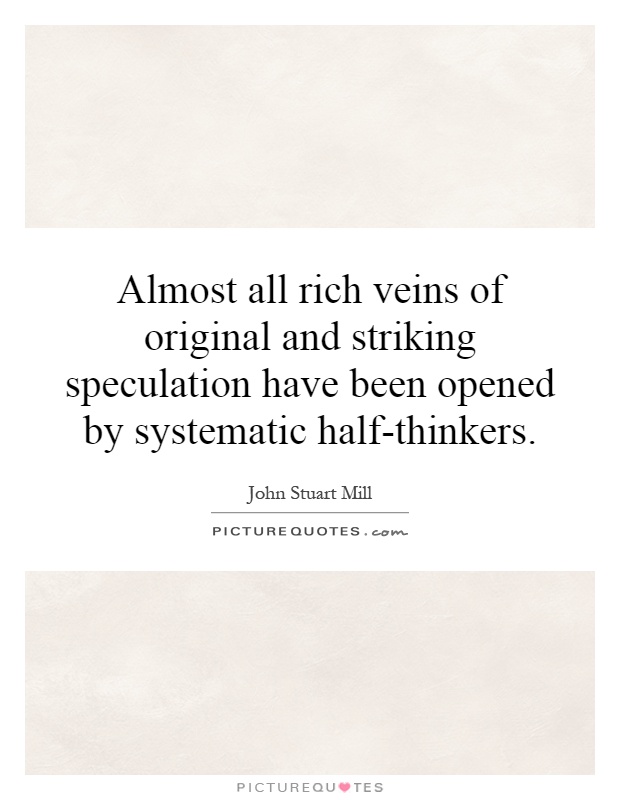Almost all rich veins of original and striking speculation have been opened by systematic half-thinkers

Almost all rich veins of original and striking speculation have been opened by systematic half-thinkers
John Stuart Mill, a prominent philosopher and economist of the 19th century, was known for his groundbreaking ideas on utilitarianism, liberty, and the role of government in society. He was a firm believer in the power of reason and critical thinking, and he often emphasized the importance of open-mindedness and intellectual curiosity in the pursuit of knowledge. However, Mill also recognized the value of what he called "systematic half-thinkers" in the development of original and striking speculation.In his essay "On Liberty," Mill argued that the free exchange of ideas and opinions is essential for the progress of society. He believed that by engaging with a diverse range of perspectives, individuals could challenge their own assumptions and beliefs, leading to the discovery of new and innovative ideas. Mill understood that not all thinkers would be able to fully develop their ideas to their fullest potential, but he believed that even partial or incomplete thoughts could serve as the starting point for further exploration and development.
Mill's own work was heavily influenced by the ideas of other thinkers, including his father James Mill and his mentor Jeremy Bentham. He recognized the importance of building on the ideas of those who came before him, while also pushing the boundaries of traditional thought. Mill's philosophy of utilitarianism, for example, was a synthesis of the ideas of Bentham and other utilitarian thinkers, but he also introduced new concepts such as higher and lower pleasures and the harm principle.












 Friendship Quotes
Friendship Quotes Love Quotes
Love Quotes Life Quotes
Life Quotes Funny Quotes
Funny Quotes Motivational Quotes
Motivational Quotes Inspirational Quotes
Inspirational Quotes